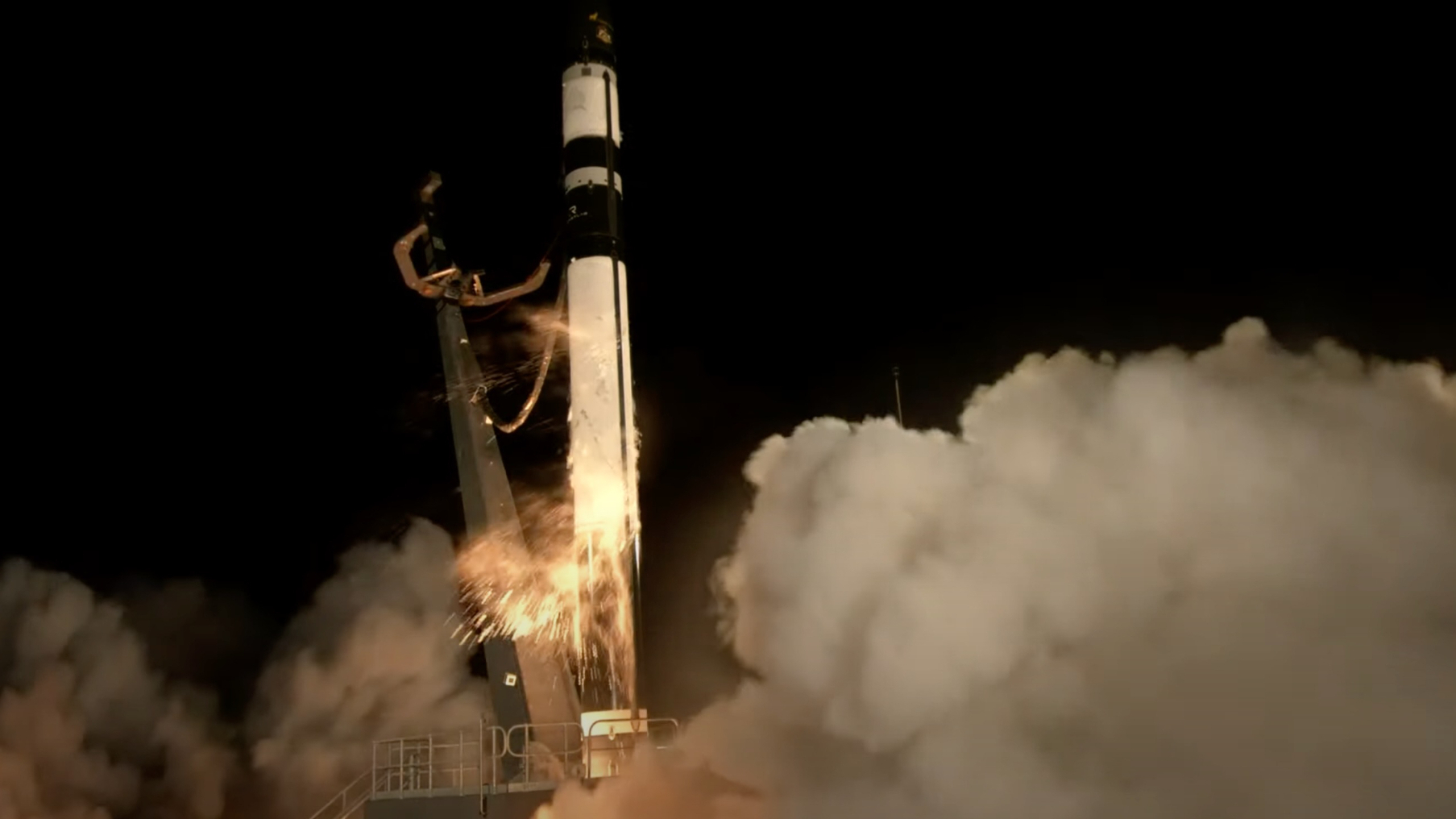Rocket Lab suffered an anomaly during the launch of a radar Earth-observation satellite early Tuesday morning (Sept. 19).
An Electron rocket carrying a synthetic aperture radar (SAR) spacecraft for the California company Capella Space lifted off from Rocket Lab's New Zealand site Tuesday at 2:55 a.m. EDT (0655 GMT; 6:55 p.m. local New Zealand time).
The Electron's two stages separated as planned about 2.5 minutes after launch. But something went wrong shortly thereafter, ending the flight.
Related: Rocket Lab launches booster with preflown engine for 1st time (video)

The launch director has called an anomaly, resulting in the end of the mission. We'll share more information as it comes to hand.September 19, 2023
Rocket Lab's telemetry data, which the company provided during the livestream of Tuesday's launch, showed the velocity of the rocket's upper stage decreasing shortly after its single Rutherford engine was supposed to kick on.
The upper-stage engine may therefore have suffered an ignition failure or a premature shutdown, though that's just speculation. Rocket Lab did not identify a proximate or ultimate cause, saying in a post on X (formerly Twitter) that it will provide more information as it becomes available.
Tuesday's mission, which the company called "We Will Never Desert You," was its ninth of the year and 41st overall. The anomaly broke a string of 19 consecutive successful launches; the company's most recent failure had been in May 2021.
Get the Space.com Newsletter
Breaking space news, the latest updates on rocket launches, skywatching events and more!
"We Will Never Desert You" aimed to deliver one of Capella Space's "Acadia" satellites to a circular orbit about 395 miles up (635 kilometers) above Earth. Tuesday's flight was the second in a four-launch contract to send these advanced SAR satellites skyward.
The first mission under that contract, Aug. 23's "We Love the Nightlife," featured an Electron with one used first-stage engine. (Electron's first stage is powered by nine Rutherfords.) That was a big milestone for Rocket Lab, which is working to make the booster reusable.
The company also recovered the Electron first stage on "We Love the Nightlife," after bringing it down softly for a parachute-aided ocean splashdown. "We Will Never Desert You" apparently did not involve a preflown engine, nor was a rocket recovery attempt in the cards; Rocket Lab did not mention such plans ahead of the launch or during the webcast.
Join our Space Forums to keep talking space on the latest missions, night sky and more! And if you have a news tip, correction or comment, let us know at: community@space.com.

Michael Wall is a Senior Space Writer with Space.com and joined the team in 2010. He primarily covers exoplanets, spaceflight and military space, but has been known to dabble in the space art beat. His book about the search for alien life, "Out There," was published on Nov. 13, 2018. Before becoming a science writer, Michael worked as a herpetologist and wildlife biologist. He has a Ph.D. in evolutionary biology from the University of Sydney, Australia, a bachelor's degree from the University of Arizona, and a graduate certificate in science writing from the University of California, Santa Cruz. To find out what his latest project is, you can follow Michael on Twitter.









